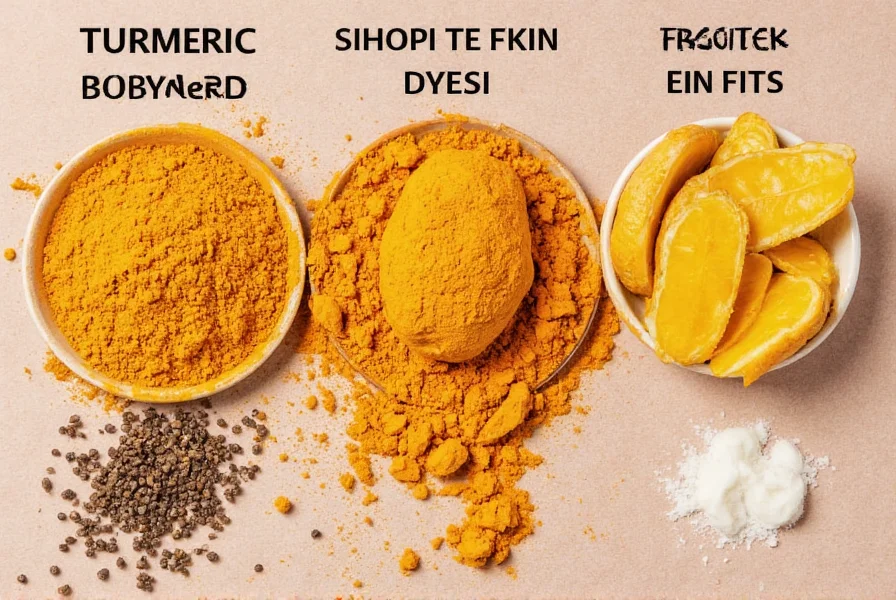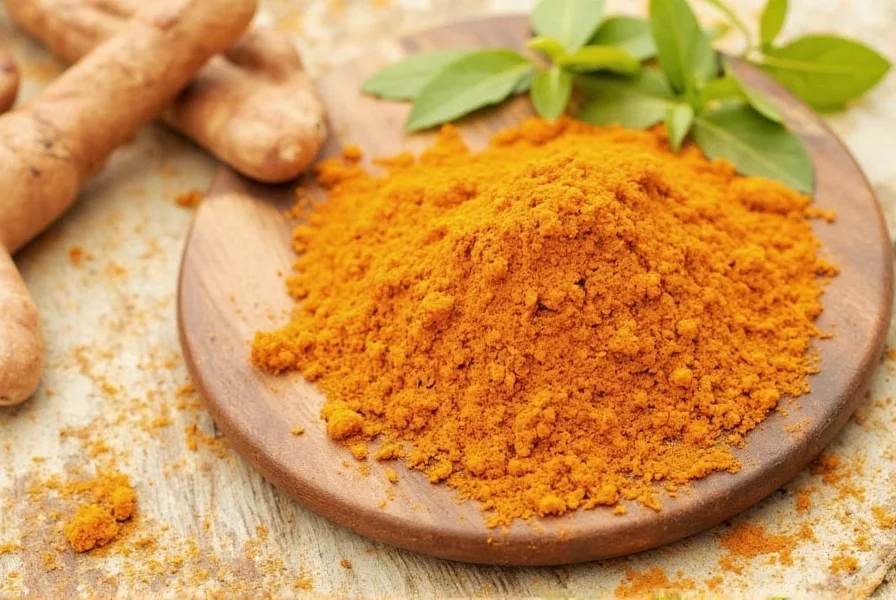For centuries, turmeric has been a cornerstone of traditional medicine systems across Asia, valued for both its vibrant color and therapeutic properties. Modern science is now validating many of these traditional uses, particularly focusing on curcumin—the primary bioactive compound that gives turmeric its distinctive yellow hue and most of its health-promoting effects. Understanding what are the health benefits of turmeric requires examining the substantial body of research that has emerged in recent decades.
Curcumin works through multiple biological pathways, influencing over 700 genes and interacting with numerous molecular targets in the body. This polypharmacological action explains why turmeric shows promise for various health conditions. However, it's crucial to distinguish between well-established benefits supported by human clinical trials and preliminary findings that require further research. The scientifically proven health benefits of turmeric primarily center around its anti-inflammatory and antioxidant capabilities.
The Science Behind Turmeric's Therapeutic Properties
Turmeric contains more than 100 bioactive compounds known as curcuminoids, with curcumin (diferuloylmethane) representing about 3% of the root's composition. Despite its relatively low concentration, curcumin demonstrates remarkable biological activity. One significant challenge with curcumin is its poor bioavailability—it's not easily absorbed into the bloodstream and is rapidly metabolized and eliminated.
Researchers have found that combining turmeric with black pepper (which contains piperine) can increase curcumin absorption by up to 2,000%. Similarly, consuming turmeric with healthy fats enhances its uptake since curcumin is fat-soluble. These practical considerations are essential when exploring how to maximize turmeric health benefits through dietary intake or supplementation.
Evidence-Based Health Benefits of Turmeric
| Health Benefit | Scientific Evidence Level | Key Research Findings |
|---|---|---|
| Anti-inflammatory Effects | Strong human evidence | Curcumin reduces inflammatory markers like CRP and IL-6; comparable to some anti-inflammatory drugs in clinical trials |
| Antioxidant Capacity | Strong laboratory evidence | Neutralizes free radicals and boosts body's own antioxidant enzymes |
| Joint Health | Moderate to strong clinical evidence | Multiple studies show reduced pain and improved function in osteoarthritis patients |
| Brain Health | Preliminary human evidence | May increase BDNF levels; potential cognitive benefits in early research |
| Cardiovascular Support | Moderate clinical evidence | Improves endothelial function and reduces oxidation of LDL cholesterol |
Powerful Anti-Inflammatory Properties
Chronic inflammation is now recognized as a contributor to many modern diseases. Curcumin's ability to inhibit multiple molecules involved in inflammation—including NF-kB, cytokines, and enzymes like COX-2—makes it particularly valuable. A comprehensive review published in Drugs in R&D concluded that curcumin demonstrates comparable efficacy to certain anti-inflammatory medications but with fewer side effects. This explains why many people seek turmeric for natural joint pain relief associated with conditions like osteoarthritis.
Antioxidant Effects That Combat Oxidative Stress
Oxidative damage contributes to aging and numerous diseases. Curcumin neutralizes free radicals due to its chemical structure while also stimulating the body's own antioxidant enzymes. Research in Advances in Experimental Medicine and Biology shows curcumin's dual action makes it more effective than many other antioxidants. Understanding how does curcumin reduce inflammation at the molecular level reveals its comprehensive approach to cellular protection.
Joint Health and Arthritis Management
Multiple clinical trials have demonstrated turmeric's effectiveness for joint conditions. A study in the Journal of Medicinal Food found that 1,500 mg of curcumin daily provided significant pain relief and functional improvement for osteoarthritis patients—comparable to standard treatments. Another trial published in Phytotherapy Research showed curcumin outperformed diclofenac sodium for rheumatoid arthritis management. These findings support turmeric's reputation for effective natural arthritis treatment.

Brain Function and Cognitive Health
Curcumin may boost levels of brain-derived neurotrophic factor (BDNF), a growth hormone that functions in the brain. Decreased BDNF levels are associated with depression and Alzheimer's disease. While human studies are still emerging, research suggests curcumin can cross the blood-brain barrier and may help clear amyloid plaques associated with Alzheimer's. A randomized controlled trial in the American Journal of Geriatric Psychiatry found that curcumin supplementation improved memory and attention in non-demented adults over 18 months.
Cardiovascular Protection
Endothelial dysfunction—when the lining of blood vessels doesn't regulate blood pressure properly—is a major driver of heart disease. Curcumin improves endothelial function as effectively as exercise in some studies. Research in Nutrition Research demonstrated that curcumin supplementation significantly improved vascular function in postmenopausal women. Additionally, curcumin's antioxidant properties help prevent oxidation of LDL cholesterol, a key step in heart disease development.
Important Considerations and Limitations
While the potential health benefits of turmeric supplements are promising, several important considerations exist:
- Bioavailability challenges: Pure curcumin has poor absorption; look for formulations with piperine or phospholipids
- Dosage requirements: Most studies use 500-2,000 mg of curcumin daily; culinary turmeric contains only about 3% curcumin
- Medication interactions: Turmeric may interact with blood thinners and diabetes medications
- Quality variation: Supplement quality varies significantly between brands
According to the National Institutes of Health, turmeric is generally safe when consumed in food amounts, but high-dose supplements may cause gastrointestinal issues in some people. Those with gallbladder problems should consult a healthcare provider before using turmeric medicinally. Understanding potential side effects of turmeric consumption is essential for safe use.
Maximizing Turmeric's Health Benefits
To get the most from turmeric:
- Combine with black pepper: Piperine enhances absorption by up to 2,000%
- Consume with healthy fats: Curcumin is fat-soluble, so pair with olive oil, avocado, or nuts
- Heat gently: Light cooking may increase bioavailability (but avoid high-heat frying)
- Consider quality supplements: Look for standardized extracts with absorption enhancers
- Be consistent: Most benefits require regular consumption over weeks or months
When selecting supplements, research published in Food Science & Nutrition indicates that formulations combining curcumin with phospholipids or using nanoparticle technology significantly improve absorption compared to standard curcumin extracts. This information addresses the common question about best way to absorb turmeric supplements.
Conclusion
The scientific evidence supporting what are the health benefits of turmeric continues to grow, with the strongest data confirming its anti-inflammatory and antioxidant properties. While not a miracle cure, incorporating turmeric into a balanced diet—particularly when consumed with absorption-enhancing ingredients—can contribute to overall wellness. As with any supplement, realistic expectations and consultation with healthcare providers, especially for those with medical conditions or taking medications, remain essential. The most effective approach combines culinary use of turmeric with evidence-based supplementation when needed, recognizing that food-based approaches typically provide the safest and most sustainable health benefits.
Frequently Asked Questions
How much turmeric should I take daily for health benefits?
For general health benefits, studies typically use 500-2,000 mg of curcumin daily. Since culinary turmeric contains only about 3% curcumin, you'd need substantial amounts in food form. Most research uses standardized extracts. Always start with lower doses to assess tolerance and consult your healthcare provider, especially if you have medical conditions or take medications.
Can turmeric really help with arthritis pain?
Multiple clinical trials show turmeric, particularly curcumin, can reduce arthritis pain and improve joint function. A study in Phytotherapy Research found curcumin outperformed diclofenac for rheumatoid arthritis symptoms. Another in the Journal of Medicinal Food showed significant improvement in osteoarthritis symptoms with 1,500 mg of curcumin daily. While not a replacement for medical treatment, it can be a valuable complementary approach.
What's the best way to consume turmeric for maximum absorption?
To maximize absorption, combine turmeric with black pepper (which contains piperine) and healthy fats. Piperine can increase curcumin absorption by up to 2,000%. Since curcumin is fat-soluble, consuming it with olive oil, avocado, or other healthy fats enhances uptake. Light cooking may also improve bioavailability, but avoid high-heat frying. For supplements, look for formulations with absorption enhancers like phospholipids or nanoparticle technology.
Are there any side effects of taking turmeric supplements?
Turmeric is generally safe when consumed in food amounts. High-dose supplements may cause gastrointestinal issues like nausea or diarrhea in some people. Turmeric may interact with blood thinners and diabetes medications, so consult your healthcare provider if you take these. Those with gallbladder problems should use caution. Most side effects occur with very high doses beyond what's typically recommended in research studies.
How long does it take to experience turmeric's health benefits?
The timeframe varies by benefit. Anti-inflammatory effects may be noticeable within 2-4 weeks for conditions like joint pain. More systemic benefits, such as improved cardiovascular markers or cognitive effects, typically require consistent use for 8-12 weeks. A study in the American Journal of Geriatric Psychiatry showed cognitive benefits after 18 months of daily supplementation. Individual responses vary based on dosage, formulation, and personal health factors.











 浙公网安备
33010002000092号
浙公网安备
33010002000092号 浙B2-20120091-4
浙B2-20120091-4